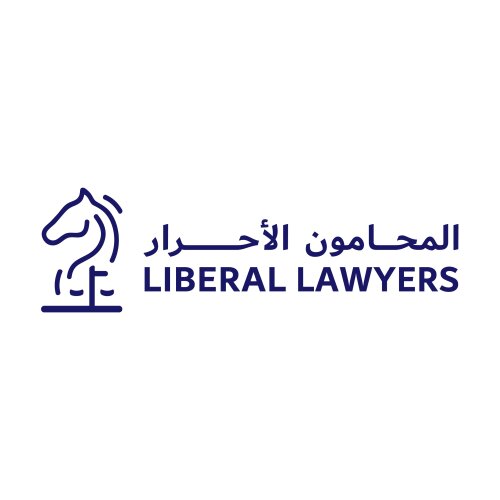Best Restructuring & Insolvency Lawyers in Abu Dhabi
Share your needs with us, get contacted by law firms.
Free. Takes 2 min.
List of the best lawyers in Abu Dhabi, United Arab Emirates
About Restructuring & Insolvency Law in Abu Dhabi, United Arab Emirates
Restructuring and insolvency law in Abu Dhabi, United Arab Emirates, deals with legal processes and frameworks that help financially struggling businesses and individuals address their debt obligations. The law provides tools to restructure debts, enter into settlements with creditors, or, if necessary, initiate bankruptcy proceedings. With the UAE's increasingly sophisticated business environment, these laws are designed to promote economic stability, protect creditors and debtors, and encourage responsible financial practice. The main legislation comes from the Federal Bankruptcy Law, which applies across the UAE, including Abu Dhabi, with additional regulations from local authorities and free zones.
Why You May Need a Lawyer
Navigating restructuring and insolvency matters can be complex, especially in Abu Dhabi, where local regulations, federal laws, and unique business customs intersect. Here are common situations in which you may need legal advice or representation:
- You are a business owner facing liquidity issues and want to explore restructuring options or manage negotiations with creditors.
- You have received a notice of bankruptcy filed against your business and need to understand your legal rights or respond appropriately.
- You are an individual struggling with personal debts and need guidance on settlement options or whether to apply for bankruptcy protection.
- You are a creditor seeking advice on recovering debts from a business or individual in financial distress.
- You need assistance in navigating court procedures, mandatory notifications, or local regulations related to insolvency proceedings.
- You want to understand the implications of local law on guarantees, asset protection, or director liability in case of insolvency.
Local Laws Overview
Restructuring and insolvency in Abu Dhabi are governed primarily by Federal Law No. 9 of 2016 on Bankruptcy (commonly known as the Bankruptcy Law), as amended. The law aligns with international best practices but also reflects the unique needs of the UAE market.
- Preventive Composition: A debtor may apply for court-approved restructuring before bankruptcy is declared, allowing continued operation while negotiating with creditors.
- Restructuring Procedures: Formal court-supervised restructuring can be initiated when it becomes clear the business cannot meet its obligations.
- Bankruptcy Procedures: If restructuring fails or is not possible, bankruptcy procedures provide for the liquidation of assets under judicial supervision.
- Creditor Protection: The rights of creditors are carefully considered, with mechanisms in place for them to participate in restructuring or liquidation proceedings.
- Director and Officer Liability: Directors and officers have specific duties and potential liabilities if they do not act in the best interests of the company or creditors in times of distress.
- Cross-border Considerations: The law provides some provisions for cross-border insolvency, though international businesses may need particular guidance for complex cases.
Additionally, businesses in Abu Dhabi Global Market (ADGM) or other free zones may be subject to specialized insolvency regimes. Always check which jurisdiction applies to your situation.
Frequently Asked Questions
What is the difference between restructuring and insolvency?
Restructuring refers to processes aimed at reorganizing a business's debts or operations to help it recover from financial difficulties, usually before resorting to formal insolvency. Insolvency occurs when a company or individual is unable to pay their debts as they come due, potentially leading to bankruptcy.
What laws govern bankruptcy and restructuring in Abu Dhabi?
The primary law is the UAE Bankruptcy Law (Federal Law No. 9 of 2016, as amended). Abu Dhabi also follows applicable civil and commercial procedure laws, with additional rules for free zones such as Abu Dhabi Global Market.
Can individuals as well as businesses use the bankruptcy law?
Yes, both individuals and companies can take advantage of debt restructuring and bankruptcy protections, though procedures and outcomes may differ.
What is a preventive composition?
Preventive composition is a process that allows debtors in financial distress to negotiate a settlement with their creditors under court supervision, aiming to avoid bankruptcy.
How long does a restructuring or insolvency process take?
The duration varies based on the complexity of the case, the number of creditors, the willingness to cooperate, and court schedules. Preventive composition may take several months, while bankruptcy liquidation can extend longer.
What happens to directors or shareholders during insolvency?
Directors and shareholders may face restrictions and could be held liable if found negligent or responsible for aggravating the company’s financial state. They are also subject to oversight during legal proceedings.
Are all of a debtor's assets included in bankruptcy proceedings?
Generally, most assets are included to ensure creditor claims are addressed, but some exemptions may apply depending on the specific case and applicable law.
Will creditors get paid in full?
Not necessarily. Payments to creditors are made in accordance with a legal priority order and depend on the amount recovered from the debtor's assets. Often creditors receive only a percentage of what is owed.
What happens if a business is in a free zone like ADGM?
Businesses in designated free zones such as ADGM may be subject to their own insolvency regulations, which can differ from mainland Abu Dhabi law. Legal advice is essential to clarify jurisdiction and applicable rules.
How do I start a bankruptcy or restructuring process?
You must submit a formal application to the courts, providing required documentation about your financial status. Legal advice is highly recommended to ensure you comply with all procedures and maximize your chances of a favorable outcome.
Additional Resources
If you are seeking more information or assistance, the following resources can be valuable:
- Abu Dhabi Judicial Department: The main authority overseeing courts related to insolvency and restructuring matters in Abu Dhabi.
- Ministry of Justice - UAE: Provides official guidelines and updates regarding federal laws, including bankruptcy procedures.
- Abu Dhabi Department of Economic Development (ADDED): Offers guidance for businesses and can direct you to licensed professionals.
- Abu Dhabi Global Market (ADGM) Courts: For businesses operating in ADGM, these courts oversee insolvency and restructuring proceedings within the free zone.
- Licensed Legal Practitioners: Registered lawyers in Abu Dhabi with expertise in insolvency law can offer personalized advice based on your situation.
Next Steps
If you believe you require assistance with restructuring or insolvency issues in Abu Dhabi, consider the following steps:
- Gather all relevant financial documents and records detailing your current situation and obligations.
- Consult with a licensed lawyer experienced in restructuring and insolvency law within your jurisdiction (mainland or free zone).
- Prepare a list of your assets, liabilities, creditors, and any ongoing negotiations or disputes related to your debts.
- Review potential outcomes and solutions such as preventive composition, restructuring, or bankruptcy with your legal advisor.
- Follow all procedural requirements carefully, including court notifications, document submissions, and creditor communications.
- Stay informed throughout the process to protect your legal rights and best interests.
Legal matters involving restructuring and insolvency can be sensitive and complex. Engaging the right professional guidance at an early stage can often help preserve value, avoid costly errors, and achieve the best possible resolution for all parties involved.
Lawzana helps you find the best lawyers and law firms in Abu Dhabi through a curated and pre-screened list of qualified legal professionals. Our platform offers rankings and detailed profiles of attorneys and law firms, allowing you to compare based on practice areas, including Restructuring & Insolvency, experience, and client feedback.
Each profile includes a description of the firm's areas of practice, client reviews, team members and partners, year of establishment, spoken languages, office locations, contact information, social media presence, and any published articles or resources. Most firms on our platform speak English and are experienced in both local and international legal matters.
Get a quote from top-rated law firms in Abu Dhabi, United Arab Emirates — quickly, securely, and without unnecessary hassle.
Disclaimer:
The information provided on this page is for general informational purposes only and does not constitute legal advice. While we strive to ensure the accuracy and relevance of the content, legal information may change over time, and interpretations of the law can vary. You should always consult with a qualified legal professional for advice specific to your situation.
We disclaim all liability for actions taken or not taken based on the content of this page. If you believe any information is incorrect or outdated, please contact us, and we will review and update it where appropriate.

















